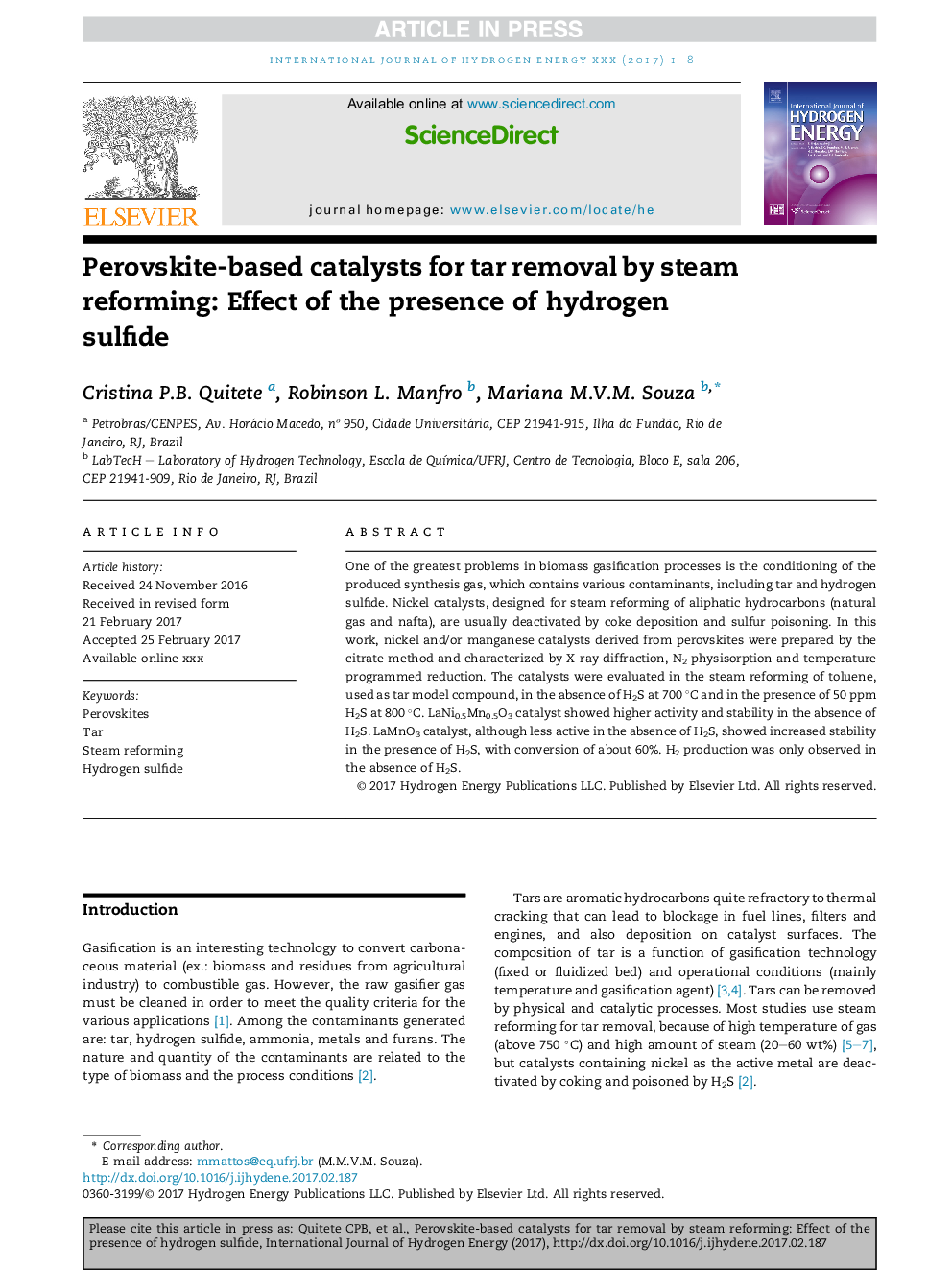| Article ID | Journal | Published Year | Pages | File Type |
|---|---|---|---|---|
| 5147960 | International Journal of Hydrogen Energy | 2017 | 8 Pages |
Abstract
One of the greatest problems in biomass gasification processes is the conditioning of the produced synthesis gas, which contains various contaminants, including tar and hydrogen sulfide. Nickel catalysts, designed for steam reforming of aliphatic hydrocarbons (natural gas and nafta), are usually deactivated by coke deposition and sulfur poisoning. In this work, nickel and/or manganese catalysts derived from perovskites were prepared by the citrate method and characterized by X-ray diffraction, N2 physisorption and temperature programmed reduction. The catalysts were evaluated in the steam reforming of toluene, used as tar model compound, in the absence of H2S at 700 °C and in the presence of 50 ppm H2S at 800 °C. LaNi0.5Mn0.5O3 catalyst showed higher activity and stability in the absence of H2S. LaMnO3 catalyst, although less active in the absence of H2S, showed increased stability in the presence of H2S, with conversion of about 60%. H2 production was only observed in the absence of H2S.
Related Topics
Physical Sciences and Engineering
Chemistry
Electrochemistry
Authors
Cristina P.B. Quitete, Robinson L. Manfro, Mariana M.V.M. Souza,
